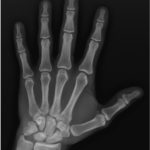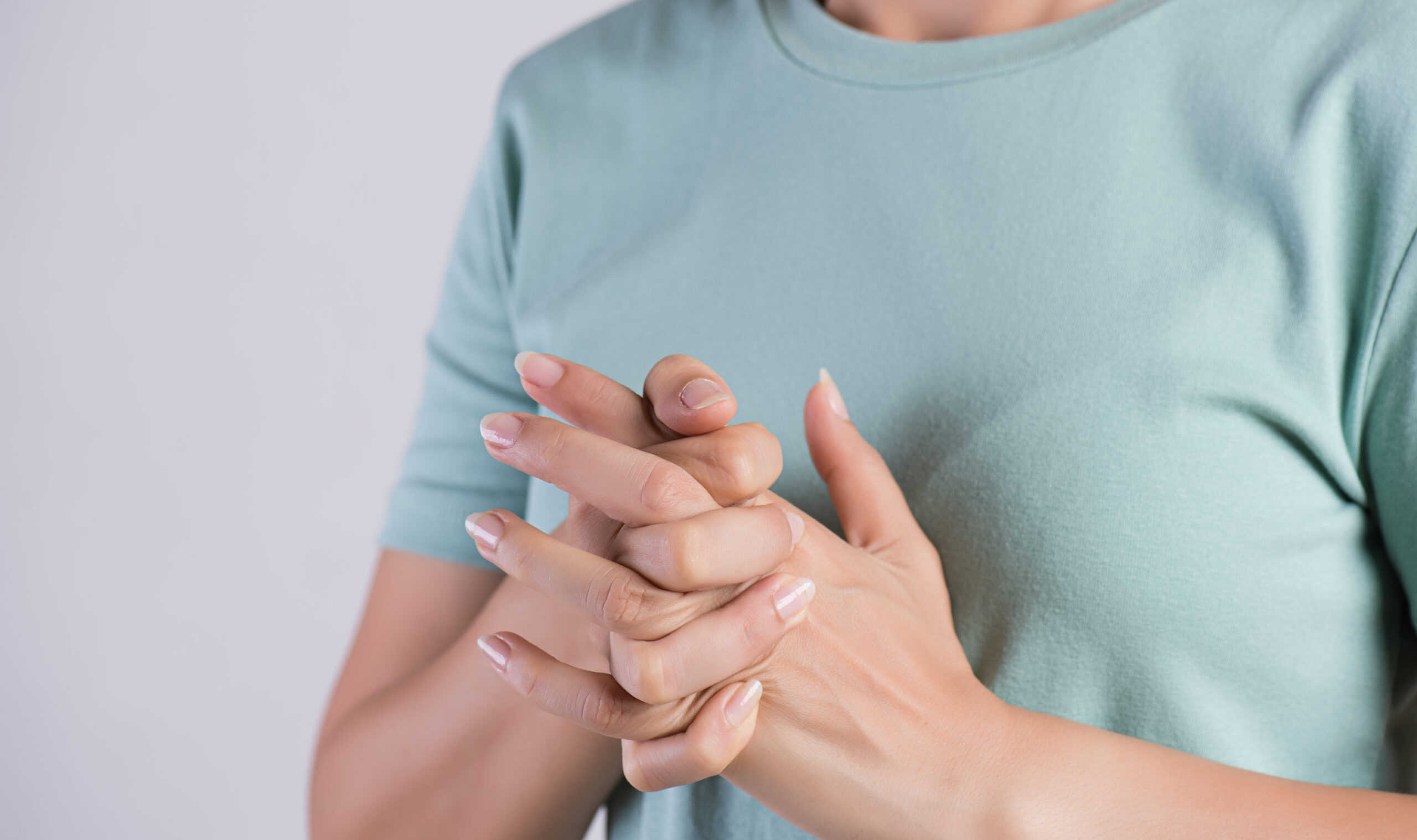Does knuckle-cracking cause arthritis?

Knuckle cracking is a fairly common behaviour, with approximately 20-50% of the population estimated to regularly crack their knuckles (See reference 1). To deliberately produce the ‘popping’ sounds, individuals bend their fingers into unusual positions, such as bending a finger backwards away from the palm (into extension), compressing a finger toward the palm (into flexion), or pulling a finger (traction). The exact physical mechanism of the ‘popping’ sound is not yet known, but the most popular theory is that of joint cavitations (See reference 2). Cavitation implies that small cavities of partial vacuum form within the joint fluid and then rapidly ‘pop’, producing the sound. In fact, the 'pop' that comes from knuckle-cracking is the same as that occurs during spine manipulation applied by a chiropractor or physical therapist. It is generally expressed by ‘knuckle-crackers’ that the behaviour is soothing/relieving. However, it is very often discouraged by ‘non-knuckle-crackers’ because of a belief that it will lead to arthritis. In order to help inform this debate, we have very briefly reviewed the existing scientific research that examines knuckle-cracking. Check it out and decide for yourself….
- First, there is anecdotal (testimonial) evidence. Medical doctor Donald Unger regularly cracked the knuckles of his left hand for sixty years, but did not crack the knuckles of his right hand (See reference 3). No arthritis or other ailments formed in either hand, and he was awarded 2009’s Ig Nobel Prize in Medicine.
- Better quality evidence comes from a study done in 1990, which examined 300 people (aged 45-89) and compared the function, appearance and strength of the hands of ‘knuckle-crackers’ versus ‘non-knuckle-crackers’ (See reference 4). The study authors found no difference in the amount of hand arthritis between the groups; however, habitual ‘knuckle-crackers’ were more likely to have some mild hand-swelling and lower grip strength. While this seems like a significant finding, it is worth noting that the subjects in the ‘knuckle-cracker’ group were also much more likely to be employed in manual labour, drink alcohol and smoke, than the subjects in the ‘non-knuckle-cracker’ group. Thus, it is also possible that the hand-swelling was actually related to one or more of these other behaviours.
 Perhaps the best research to date is a very recent study that examined the hand X-rays of 215 people (aged 50 to 89) and compared the knuckle-joints of those who regularly cracked their knuckles to those who did not (See reference 1). The study found no difference between the knuckles of those who did and those who did not regularly crack their knuckles. There were also no significant associations found between the duration of knuckle-cracking, or the amount of daily knuckle-cracking and the presence of arthritis.
Perhaps the best research to date is a very recent study that examined the hand X-rays of 215 people (aged 50 to 89) and compared the knuckle-joints of those who regularly cracked their knuckles to those who did not (See reference 1). The study found no difference between the knuckles of those who did and those who did not regularly crack their knuckles. There were also no significant associations found between the duration of knuckle-cracking, or the amount of daily knuckle-cracking and the presence of arthritis.
Our conclusion, based on the existing scientific research….if you have been stressing about your knuckle-cracking habit, you can relax, because the evidence suggests you’re not doing any harm. However, it is still possible that regular knuckle-cracking might cause some minor hand swelling and reduced hand strength.
References
1) Deweber K, Olszewski M, Ortolano R. Knuckle cracking and hand osteoarthritis. J Am Board Fam Med. 2011 Mar-Apr;24(2):169-74.
2) Protopapas MG, Cymet TC. Joint cracking and popping: understanding noises that accompany articular release. J Am Osteopath Assoc. 2002 May;102(5):283-7.
3) “Ig Nobel Winner Shows Knuckle Cracking Won’t Cause Arthritis” The Tech Online. Volume 129, Issue 41, 2009. http://tech.mit.edu/V129/N41/ignobels.html
4) Castellanos J, Axelrod D. Effect of habitual knuckle cracking on hand function. Ann Rheum Dis. 1990 May;49(5):308-9.

